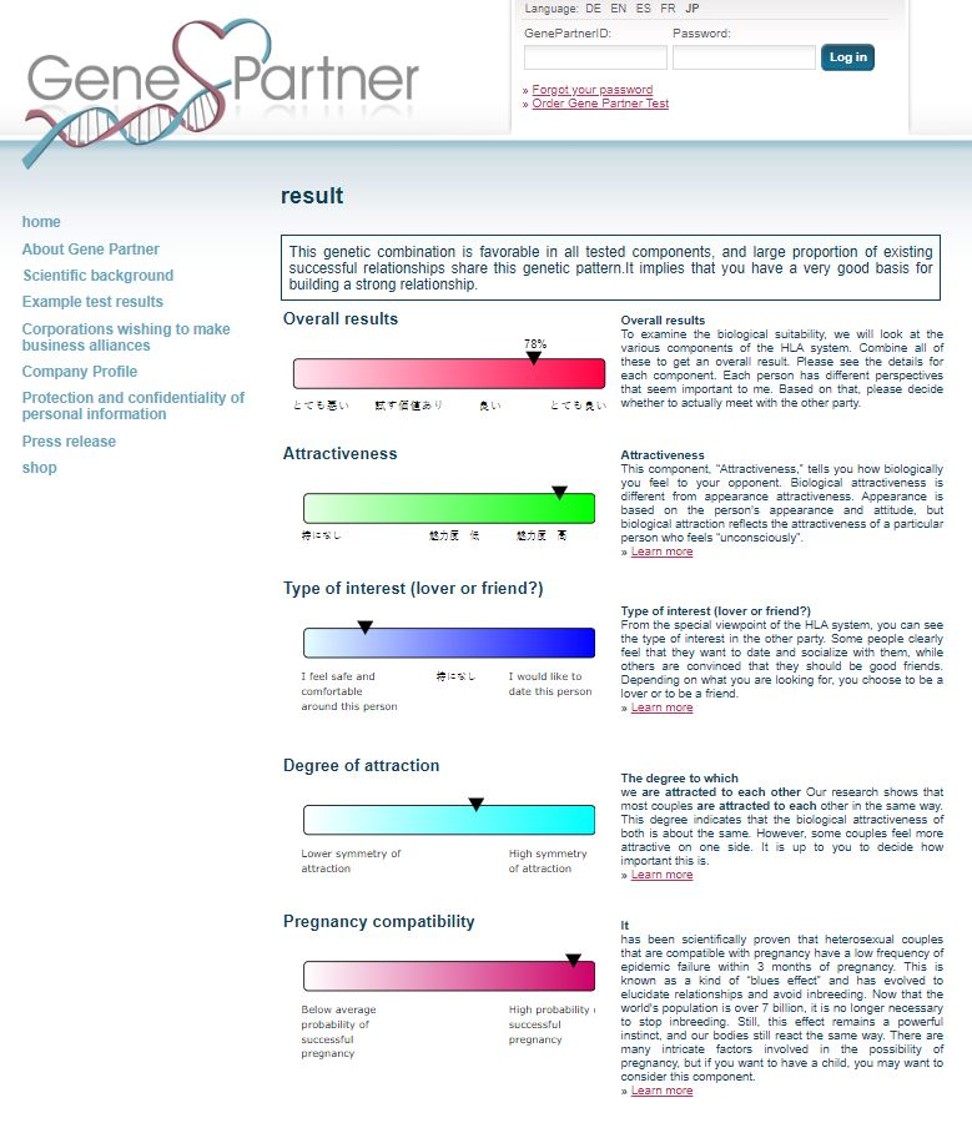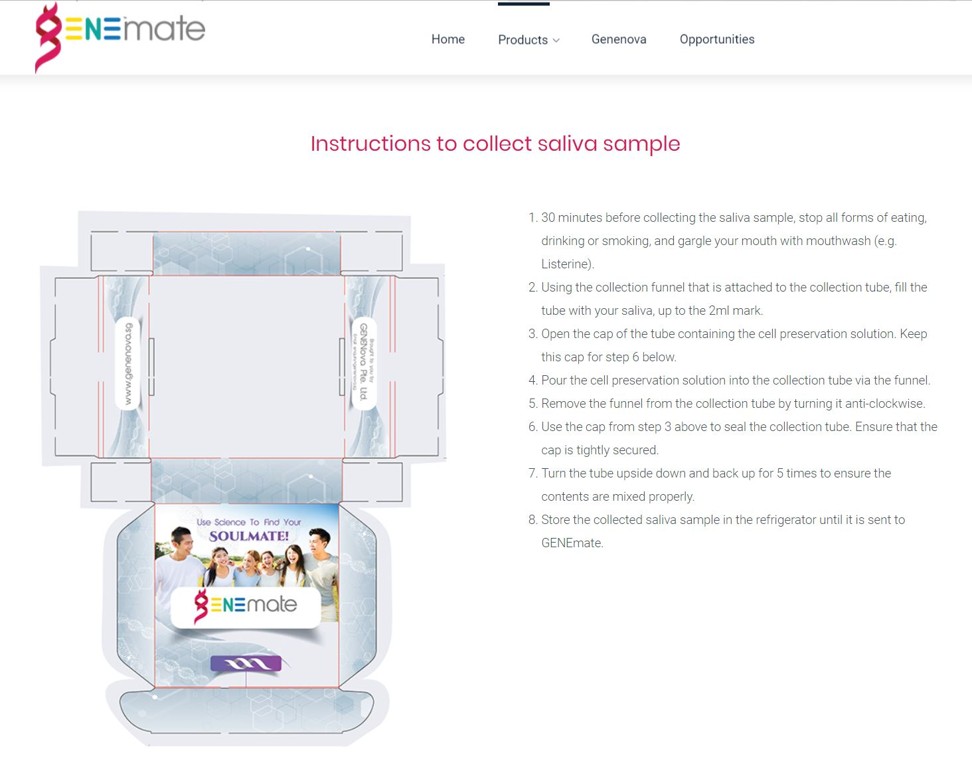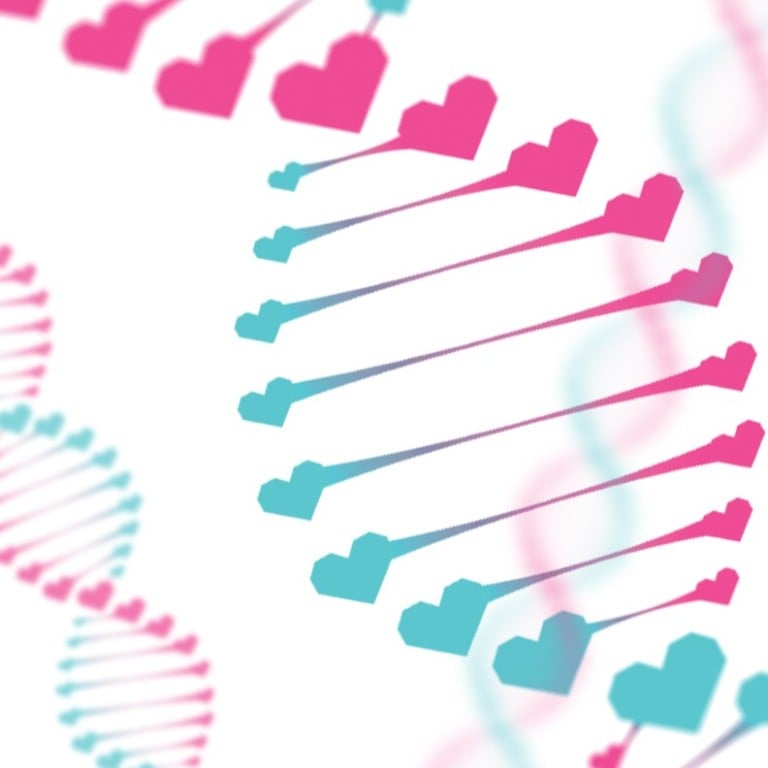
Forget Tinder, DNA matchmaking claims to have love down to a science
- A growing number of lonely hearts are tapping into genetic testing in their search for a soulmate
- Some governments see it as a fix for low birth rates, but experts warn that the science is far from conclusive
Ayumi Miyazaki had tried many dating options over the years. From singles parties to swiping right on Tinder, nothing seemed to work for the architect, 37, living in the Japanese city of Kawasaki.
Finally, in 2017, she decided to hand her romantic destiny over to science, and let a laboratory choose her ideal match.
She joined Gene Partner Japan, a Tokyo-based DNA matchmaking service which claims it can match couples based on genetic compatibility. A saliva swab was taken from inside Miyazaki’s cheek, and, one DNA test and two years later, she is now happily engaged to Shun Orihara, a 34-year-old manager who was living in Yokohama. And all for just 36,000 yen (US$330).
Miyazaki and Orihara were part of a growing number of Japanese love-seekers tapping into DNA matchmaking, an emerging niche market within the genetic testing industry.
“Gene Partner introduced me to two men, and, based on their DNA results, only one was compatible with me,” Miyazaki said. “The man who I was compatible with is now my fiance.”
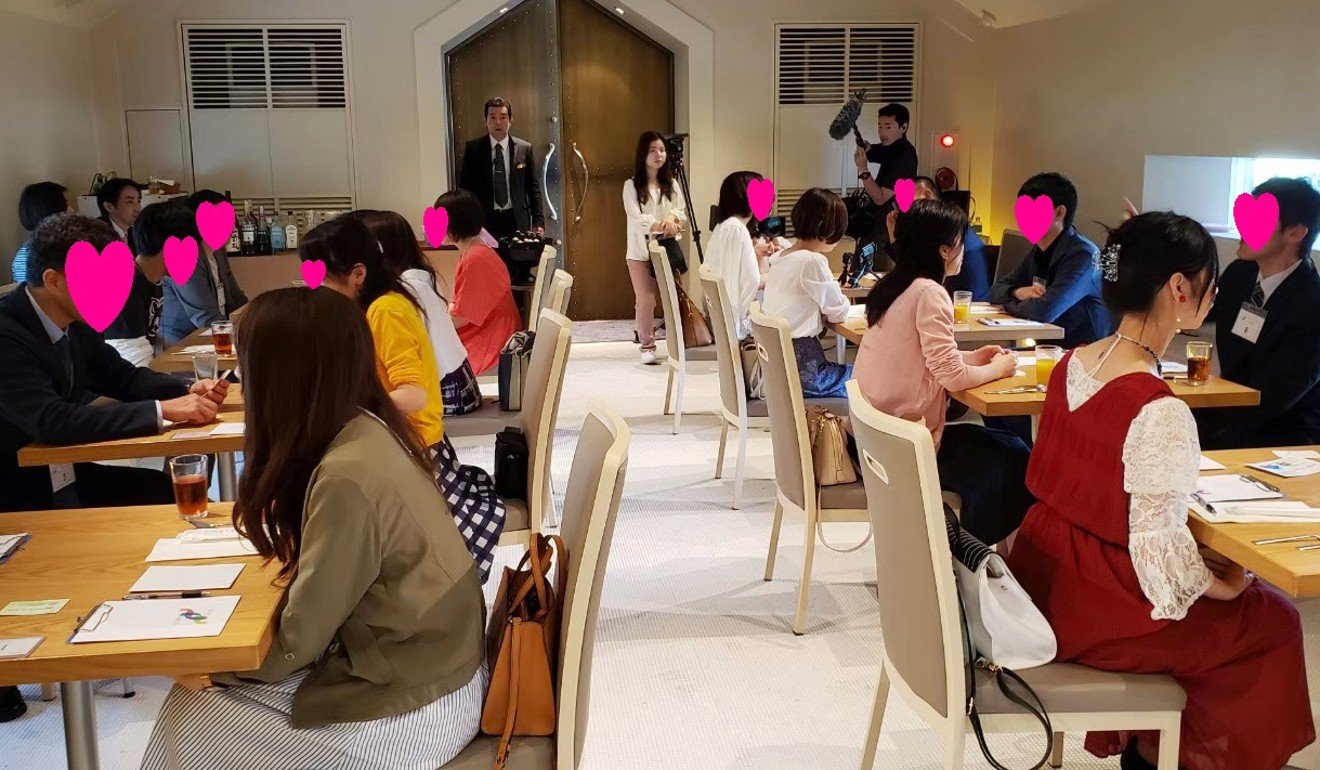
Deciphering what hereditary diseases you have or checking the breed of your pet are well-established procedures. On the other hand, determining your romantic compatibility through test-tube results seems far-fetched. Or is it?
‘Tinder tourists’: Indonesian sex workers turn to online dating apps for safety
HOW IS IT DONE?
Many DNA matchmakers use the same methods to test for compatibility. Gene Partner Japan, a regional franchise of the original Swiss-based Gene Partner, analyses the differences in applicants’ human leucocyte antigen, or HLA genes. According to Chieko Date, CEO of Gene Partner Japan, the greater the genetic distance between two people’s HLA molecules, the more attractive they might find one another.
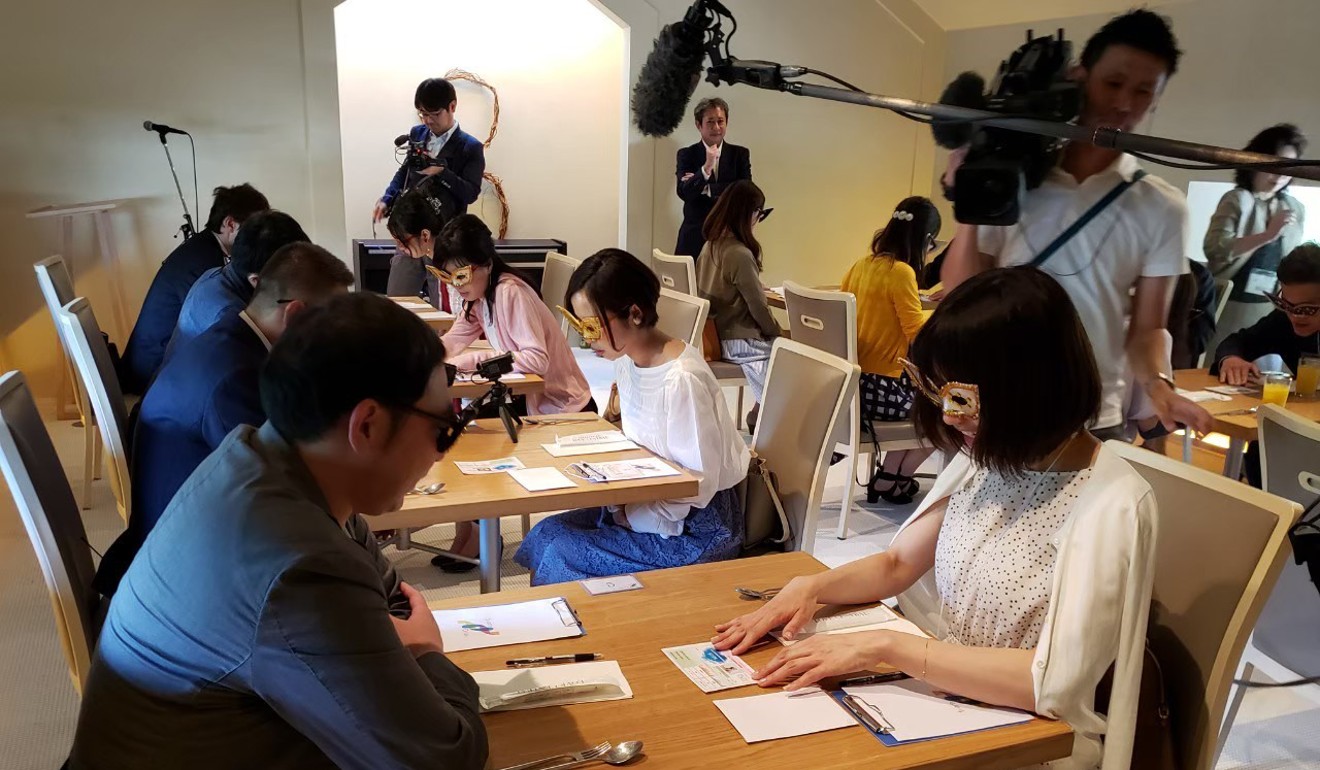
“There are over 1,000 types of HLA genes,” said Date, adding that other genetic factors such as appearance, hobbies and interests, and compatibility in fertility are also considered. Since launching her company in 2015, Date said she had matched 18 couples. “The theme is to create long-lasting marriages.”
For 19,800 yen (about US$182) per test and analysis, Gene Future, another Japanese matchmaking firm based in Tokyo and Kyoto offers similar HLA-based testing. The firm’s CEO Kiyotaka Sugihara says they have tested the DNA of over 900 singles, but adds that non-DNA factors also matter in their matchmaking. “DNA testing is based on biological makeup, but total compatibility also depends on factors such as social compatibility,” he said. “Still, I think DNA matchmaking is useful in helping people decide on who to marry.”
At Singapore-based DNA matchmaker Genemate, applicants pay US$280 and submit their saliva in tubes for testing. According to Roger Poon, a co-founder of the firm, their laboratory analyses an individual’s HLA genes and groups them into one of eight tribes, or categories, based on type. They then match clients with “soulmates” from other tribes.
“Individuals can match as many people as they need to find their ultimate soulmate,” Poon said.
For a guaranteed swipe right, 10 quick and dirty tips for your dating life
DOES IT EVEN WORK?
Many firms claim to be able to match people based on scientific principles, but experts say that while the potential is enormous, the current capabilities of genetic testing are not quite there yet.
Brian Chung, a clinical associate professor in the department of paediatrics and adolescent medicine at the University of Hong Kong, said it was too soon to certify that such technologies could predetermine love matches.
“I don’t think we know all the genes involved, and even in the future we may not know them,” he said. Chung added that it was not just to do with DNA testing but also the way personalities and characteristics were formed through a combination of nature and nurture.
“Personality is affected by genetics, environment and the interaction of these things,” he said.
But as with astrology, personality tests and other methods of determining compatibility, sometimes correlation can be enough to imply causation. For instance, Date of Gene Partner said DNA testing could be used to justify break-ups as well.
“A married client who had a five-year-old daughter felt there was something wrong in his relationship with his wife,” she said. “He used Gene Partner and found they were genetically incompatible, and therefore decided to get a divorce.”
Arranged marriages of today: ‘dating agencies’ are the modern matchmakers
STATE SUPPORT
Given the push by governments to drive up plummeting birth rates in countries such as Japan and Singapore, which respectively saw 1.42 and 1.14 births per woman last year – well below the rate of 2.1 needed to maintain the populations – some DNA matchmaking firms are even seeing support from the state.
Poon of Genemate said Singapore’s family planning department, the Social Development Network (SDN), was aware of their company, and had directed them to work with accredited matchmaking services. “We have contacted three of them and are working with two for upcoming events in November and December,” Poon said.
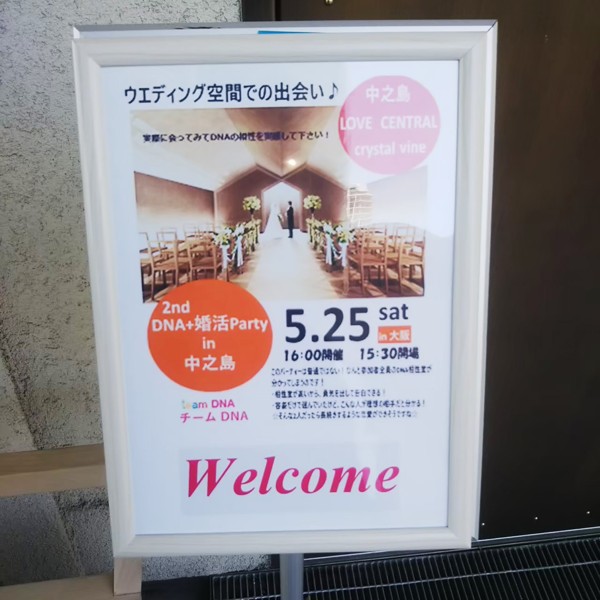
Local policy experts, however, are unsure if Singapore singles will willingly participate in such programmes. Although the SDN had been trying to get love-seekers to be receptive to these events and services, there had been limited success, said Kelvin Seah, an economics lecturer and social sciences researcher at the National University of Singapore.
“I don’t think Singaporean singles are more open to matchmaking than singles from other Asian societies,” he said, pointing out that many did not make use of SDN programmes due to the embarrassment and social stigma attached to being seen as an unwanted single.
Since 2017, more than half of Japan’s municipal governments have held regular matchmaking events for local singles, according to Japanese media. Ehime prefecture has offered an analytics-based programme since 2015 through a government-run marriage-promotion centre.
But critics such as Kumiko Kawashima, a lecturer in gender and sociology at Macquarie University in Australia, say state-endorsed matchmaking schemes have proven to be a tough sell because they do not address the socio-economic problems causing low birth rates.
“Double-income households are the new norm in Japan, and obstacles such as long working hours and the unavailability of flexible access to childcare certainly do not help encourage couples, especially women, to have more children,” she said. “Bringing up children needs to be considered a responsibility of the entire society, not just the parents.” ■
Additional reporting by Yumi Mizuno


